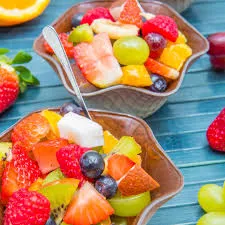
Drinking more water makes the kidneys better
Drinking too much water cures kidney problems, it is actually a misconception. How much water to drink depends on the weather and the type of work. Thirst for water indicates the amount of water to drink. However, if dehydration is not met after diarrhea or vomiting, kidney failure may occur. If you have kidney failure again, you are asked to drink water instead. If you have kidney stones or infection, you are often asked to drink more water and liquid food.
It is forbidden to eat fruits
Many people stop eating fruits if they have long term kidney problems. In fact, if you have a tendency to increase potassium, high potassium rich fruits such as bananas, dabs, tomatoes are advised to avoid. However, papaya, pineapple, guava, apple, pear are all kidney friendly fruits. These can be eaten in moderation. Fruit cannot be eaten, it is not right.
Can't eat protein
When creatinine is increased or protein is excreted in the urine, many people stop eating all fish and meat. This is absolutely wrong. 0.6 grams of protein per kg body weight can be taken up to the third stage of long-term kidney problems. For example, if someone weighs 60 kg, he will eat 48 grams of meat daily. It must be first class protein such as fish, meat, eggs. Absolutely low protein intake will lead to malnutrition. However, if the problem reaches the fourth stage, no more than 60 grams of protein can be taken.
Prohibition of dairy foods
This is also a misconception. Only if the kidneys are crippled, do not eat extra dairy foods so as not to increase the amount of phosphorus or phosphate in the blood. In addition, you have to take a moderate amount of dairy food every day. Otherwise the body is deficient in calcium and vitamin D.
Potassium-rich foods are prohibited
It is not right that all kidney patients should avoid potassium rich foods. Among long-term kidney patients, only those who have high levels of potassium in their blood and whose problems have reached stage IV should avoid high potassium-rich foods. Such patients should eat low potassium rich foods.
Nutritionist, Ibn Sina Consultation Center, Badda
